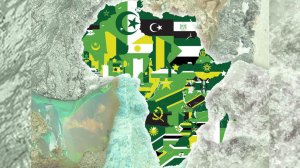Africa’s critical minerals opportunity: Only partnerships can make it happen
Effectively unlocking Africa’s critical minerals potential will take a range of committed global partnerships, across areas such as ethical investments, geology, technology, downstream development and youth and community involvement.
This the emerging industry consensus as the mining sector prepares for its critical annual gathering, Investing In African Mining Indaba, to be held in February, 2025.
In the build-up to the event, a recent webinar on critical minerals, hosted by Creamer Media in partnership with the Investing in African Mining Indaba, focused on the theme “Unlocking Africa's critical minerals through global demand and local development”.
Exploration
Council for Geoscience CEO Mosa Mabuza said to gain a good grasp of Africa's critical mineral endowment, the continent needs a clear geological understanding. But serious exploration is required to reach that point – far more than is currently being conducted.
“Developed economies invest vastly more in geosciences per square kilometres than Africa does,” he said. “We need mechanisms to close that gap, so that Africa gains a better knowledge of what minerals it has and how those minerals can ultimately fit into integrated value chains.” Emphasising that a clear understanding of what minerals Africa possesses is crucial for developing downstream industries and attracting investment. He further noted the need for Africa to define "critical minerals" based on its own needs and priorities, rather than simply adopting definitions from other regions.
Financing this level of exploration will require innovative funding partnerships. Fortunately, South Africa’s IDC has stepped up its support of African exploration, having recently launched the Junior Mining Exploration Fund in partnership with South Africa’s Department of Mineral and Petroleum Resources (DMPR).
“We need ambitious, systematic exploration to unlock Africa’s resources and,” said IDC Senior Industry Specialist Kgashane Mohale. “This is why the JMEF targets junior miners. It is an exciting project focused on driving exploration in an inclusive manner.”
The fund’s first tranche of R160 million has already been allocated – out of a total R400 million allocation. The fund offers grant funding, which is convertible to equity, should a viable ore body be found.
Mohale said the IDC had also expanded its mandate beyond the borders of South Africa and was looking to find partners across the continent.
Event facilitator Lauren (Cornish) Nicholson noted that there was a balance to be struck between supplying global demand for critical minerals to power the energy transition, and retaining some of the continent’s mineral wealth to develop its local downstream potential.
“Never before has the mining industry needed to be so connected across the value chain as it does today,” she said.
Policy enablement
Calling for policies that link economic development to critical mineral mining, Minerals Council South Africa CEO Mzila Mthenjane said policy had a huge role to play in how the continent develops its critical minerals. He said the goal for African countries must be to develop policy frameworks that would link economic development to the mining of Africa’s critical minerals.
“In this new technology-driven era of the energy transition, mining is one of two or three key industries that can be a true catalyst for economic development on the continent. Policy should be developed in a way that unlocks this massive upside for the industry.”
He said it should be made as easy as possible for new exploration businesses to prospect, and then establish mines.
A positive legacy
If minerals are to benefit local communities in new, more impactful ways, mining must leave a positive legacy said, Church of England Pensions Board chief responsible investment officer Adam Matthews – specifically in the form of infrastructure, capital, investment, as well as environmental and social performance.
“There must be incentives, to reward those companies that are doing things the right way,” said Matthews.
Matthews said the investor community was looking for ways to operate differently, recognising that there would need to be something like 300 new mines to meet global demand for the energy transition.
“The goal is to build partnerships with industry, government, and other stakeholders to really unlock the minerals for the transition. The long-term capital to ensure we do it differently will come from investors looking to follow ESG standards. That will be how we meet future demand.”
A bedrock of connectivity
MTN Business information and communication technology solutions GM Sudipto Moitra said technology would be critical to ensuring Africa had a prosperous future as a producer of critical minerals.
“From operator-assist technology and collision-avoidance sensors to remote operations, we are seeing the convergence of information technology and operational technology,” he said. “But it must be practical to implement. In that context, connectivity is the bedrock of all these technologies – the enablement layer – through technologies like private networks, 4G and 5G.”
Nicholson noted that in terms of industry relationships, the mining industry was now far closer to manufacturing than it had been previously.
“Already automotive OEMs in the EV space are looking upstream for security of supply. This is leading to stronger partnerships with mining businesses and the mining sector as a whole. Indeed, OEMs are now an established presence at the annual Investing In African Mining Indaba.”
Mosa pointed out that a question fundamental to the entire debate was the idea of which minerals were in fact “critical minerals?”
“There needs to be more thought on the continent on how we classify certain minerals as critical. What may be critical for Europe may not necessarily be critical for South Africa. The nexus of criticality for the two regions, could begin to define how we relate.”
Community and the youth
Moitra noted that with mines becoming more connected, there were opportunities to expand the technology dividend to benefit youth and entrepreneurs in surrounding communities be similarly connected and empowered by modern technology.
“Technology can be a great enabler for youth, and for communities,” he said. “Telecommunications policy needs to enable this inclusiveness. There is also room for investments in private networks on mines and their surrounding communities. The inclusion of youth, and different community segments in the ecosystem is pivotal to commercialising the sector.”
The event heard that the global investor community was coming to accept that it needed mining – done well – to meet its critical mineral needs.
“The mining sector must stand behind the best operators, to ensure investments flow into the countries where they’re needed,” said Matthews. “Investing in African Mining Indaba will see a series of round tables with investors to develop partnerships to map a new way forward and to unlock that investment flow.”
- Investing in African Mining Indaba takes place from February 3 – 6, 2025 at CTICC, Cape Town. Click here to register






